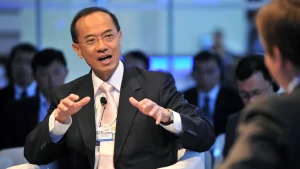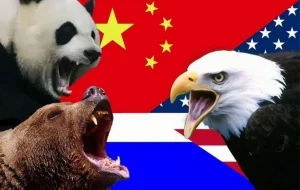Biden’s China Blunder is Now Troubling Harris

Reuters reported earlier today that Vice President Kamala Harris is about to make her first significant trade decision tied to China since taking the reins of President Biden—This will have a significant impact on the feeding problems of 140,000 American workers and 3.6 million babies.
The question is whether to implement Section 301, to hike tariffs on Chinese imports, specifically targeting lithium batteries, solar panels, electric vehicles, critical minerals, and semiconductors. This move would impact approximately $18 billion worth of trade between the U.S. and China.
These tariff hikes were initially set to take effect on August 1st. However, pushback from over a hundred U.S. companies and industry associations—who submitted more than a thousand objections—prompted the U.S. Trade Representative’s office to delay the decision. Now, as we approach the end of August, this critical issue has landed on Harris’s desk.
Among the loudest voices in opposition are U.S. port operators. They’re particularly concerned about a proposed 25% tariff on Chinese-made ship-to-shore cranes. The American Association of Port Authorities warns that this could add a staggering $130 million to the cost of 35 cranes already ordered from China, with future procurement plans also at risk.
The Virginia Port Authority highlights a simple but crucial fact: No American company currently manufactures these cranes. Over 80% of the shore cranes used in U.S. ports are made in China. The U.S. ports are already facing fierce competition from their counterparts in Canada and Mexico. The proposed tariffs could drive business away from American ports, reducing dockworker jobs and shifting them to our neighbors to the north and south.
The US government also claims that Chinese-made cranes pose a cybersecurity threat. Port authorities across the country argue that the cranes they’ve purchased from China operate independently of Chinese software. The control systems are developed by U.S. allies and thoroughly tested on American soil. Several American Port Authorities pointed out that hiking tariffs are not the solution to so-called “cybersecurity concerns.”
The opposition doesn’t stop there. Major U.S. companies, including Ford, are calling for a reduction in tariffs on synthetic graphite—a key material in electric vehicle batteries. Ford says it still relies almost entirely on secondary synthetic graphite sourced from China.
Meanwhile, Democratic Senators Raphael Warnock and Jon Ossoff are raising concerns over a proposed 50% tariff on Chinese-made syringes, saying they could disrupt supplies for those used to feed newborn infants.
International organizations are also weighing in. The International Monetary Fund warns that significantly raising tariffs on China could jeopardize global trade and economic growth, potentially cutting global GDP by around 7%, equivalent to the combined economies of Japan and Germany. Moody’s estimates that American consumers have borne 92% of the costs from previous tariffs on China, and Section 301 could add an extra $1,300 to the average American household’s annual expenses. The U.S. Tax Foundation predicts that the new tariffs could cost the U.S. 142,000 jobs.
And in an analysis by Foreign Policy in May, it was noted that Chinese-made electric vehicles accounted for just 2% of the U.S. market last year. So, any increase in tariffs on these vehicles is unlikely to seriously hurt Chinese manufacturers. From this angle, these measures appear more politically motivated, with the Biden administration aiming to pleasure blue-collar voters in key swing states like Michigan and Pennsylvania.
The big question now: Will Vice President Harris push forward with these tariffs to gain political support, even if it means risking global economic fallout, or even a shortage of essential medical supplies for newborns? We’ll be watching closely as this story unfolds.



